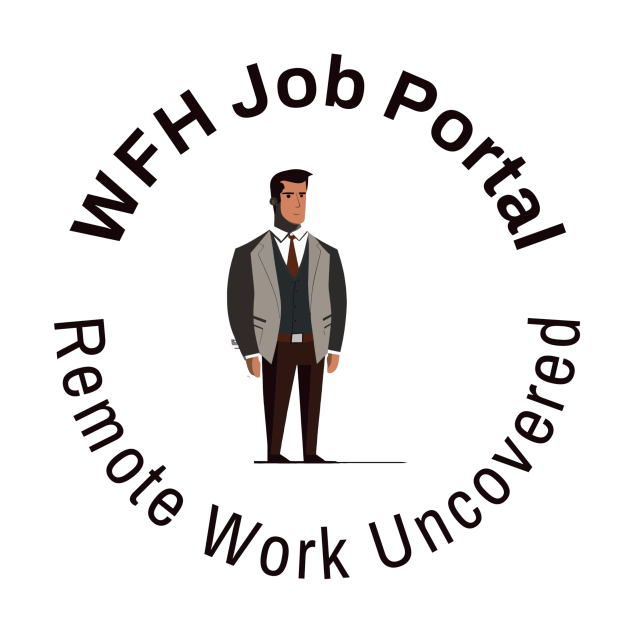The landscape of work has dramatically shifted in recent years, with remote jobs becoming increasingly prevalent across various industries. Whether you’re seeking flexibility, a better work-life balance, or the opportunity to work from anywhere, remote jobs can offer numerous benefits. However, securing a remote position comes with its own set of challenges and considerations. Here are five crucial things to know when finding remote work:
1. Understand the Different Types of Remote Work
Remote work isn’t one-size-fits-all. It’s important to understand the different types of remote work arrangements to find the one that best suits your needs:
- Fully Remote: Employees work entirely from home or another location outside the company’s office.
- Hybrid: A combination of remote work and on-site work, where employees split their time between the office and home.
- Flexible Remote: Employees have the flexibility to choose where they work from, with no mandatory office days.
Each type offers varying degrees of flexibility and requires different levels of discipline and self-management. Understanding these distinctions can help you target the roles that align with your lifestyle and preferences when finding remote work.
2. Evaluate the Company’s Remote Work Culture
A company’s approach to remote work can significantly impact your job satisfaction and productivity. Here are some aspects to consider:
- Communication Tools: Check if the company uses effective communication tools (e.g., Slack, Zoom, Microsoft Teams) to facilitate collaboration.
- Remote Work Policies: Look for companies with clear remote work policies, including guidelines for working hours, meetings, and performance evaluations.
- Support and Resources: Assess if the company provides resources such as ergonomic equipment, stipends for home office setup, or access to mental health support.
Reading reviews on platforms like Glassdoor and reaching out to current or former employees can provide insights into the company’s remote work culture. This evaluation is essential when finding remote work that will be a good fit for you.
3. Highlight Your Remote Work Skills
When finding remote work, it’s crucial to showcase skills that are particularly valuable for remote work. These include:
- Self-Motivation: Demonstrate your ability to stay motivated and productive without direct supervision.
- Time Management: Highlight your skills in managing your schedule, meeting deadlines, and balancing work with personal life.
- Communication: Emphasize your proficiency in written and verbal communication, as remote work relies heavily on clear and concise interactions.
- Tech Savvy: Showcase your familiarity with remote work tools and technologies, such as video conferencing software, project management tools, and cloud-based platforms.
Tailoring your resume and cover letter to reflect these skills can help you stand out to potential employers when finding remote work.
4. Prepare for Remote Job Interviews
Remote job interviews often differ from traditional in-person interviews. Here are some tips to prepare effectively:
- Test Your Technology: Ensure your internet connection, camera, and microphone are working properly before the interview.
- Create a Professional Environment: Choose a quiet, well-lit space with a neutral background for your interview. Avoid interruptions and distractions.
- Practice Video Interview Etiquette: Maintain eye contact by looking at the camera, dress professionally, and be mindful of your body language.
- Ask About Remote Work Logistics: Inquire about the company’s remote work policies, expectations for availability, and how they support remote employees.
Preparing thoroughly can help you present yourself as a capable and confident remote worker, making it easier for you to succeed in finding remote work.
5. Be Aware of Remote Job Scams
Unfortunately, the rise in remote job opportunities has also led to an increase in remote job scams. To protect yourself, keep the following tips in mind:
- Research the Company: Verify the legitimacy of the company by checking their website, reading reviews, and looking them up on LinkedIn and other professional platforms.
- Beware of Red Flags: Be cautious of job postings that promise high salaries for minimal work, require upfront payments, or use non-professional email addresses.
- Avoid Sharing Personal Information: Do not provide sensitive information such as your Social Security number, bank account details, or copies of your ID during the initial stages of the application process.
Using reputable job search platforms and conducting thorough research can help you avoid falling victim to scams when finding remote work.
Conclusion
Finding remote work requires careful consideration and preparation. By understanding the different types of remote work, evaluating company culture, highlighting relevant skills, preparing for remote interviews, and staying vigilant against scams, you can increase your chances of securing a rewarding remote position. Embrace the flexibility and opportunities that remote work offers, and take the necessary steps to ensure a successful and fulfilling remote career.



